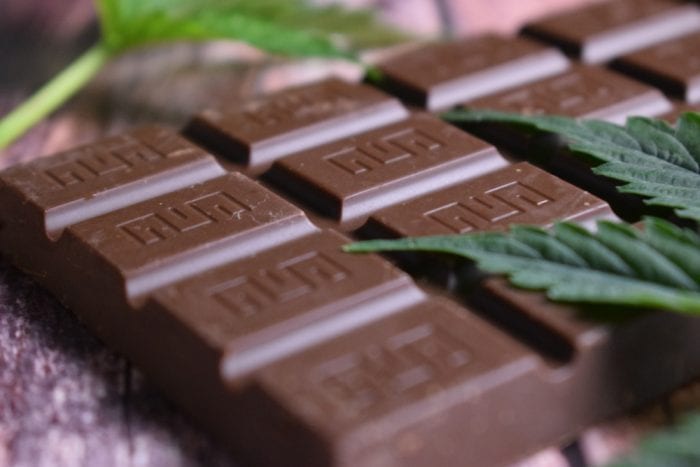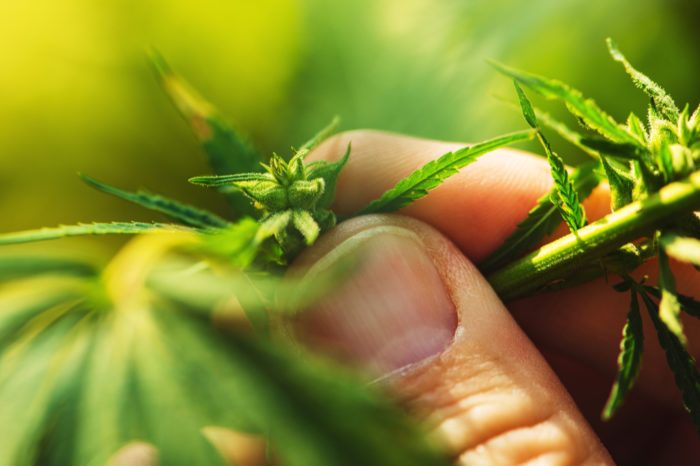The legal status of hemp-derived CBD has created a murky market of CBD illegal products that individual states are cracking down on.
While it’s true that CBD is legal in all 50 states, there are circumstances where it is not legal (such as edibles) and this varies from state to state. Things are confusing, but there is one consistency: hemp-derived CBD is (usually) legal but cannabis-derived CBD is only legal in states that have legalized medial and/or recreational cannabis. Then within the 50 states, there are emerging rules about hemp-derived CBD.
New York’s Guidelines and the 2018 Farm Bill
You’ll never run out of cannabidiol (CBD) options when in New York City. Coffee shops, eateries, and bakeries offer all manner of cannabis-infused goodies. Licensed dispensaries are also plentiful, both online and with brick and mortar establishments. These shops offer all sorts of CBD treats such as gummies, chocolates, and infused juices.
However, despite the prevalence, CBD is still classified as a controlled substance by the DEA…when it is derived from cannabis.The 2018 Farm Bill classified hemp as an agricultural crop that can be cultivated and used freely throughout the US. This makes CBD derived from hemp a legal product. But, how do I know if my CBD comes from hemp or cannabis? Producers can put a label on the packaging but once the cafe bakes with it, how could the consumer ever know? The government has already thought of that.
Edibles Are A No-Go
However, CBD infused foods are on the borderline, as the Farm Bill still preserves the FDA’s authority over CBD products. The FDA maintains that it is illegal to infuse foods with CBD, and the NYC department of health is following this to the letter.
“Restaurants in New York City are not permitted to add anything to food or drink that is not approved as safe to eat. Until cannabidiol is deemed safe as a food additive, the Department is ordering restaurants not to offer products containing CBD,” according to a statement from the NY DOH.
Following this, the DOH launched a crackdown on eateries and coffee shops selling CBD-infused treats throughout NY. One of the first police targest was the well-known Fat Cat Kitchen, who lost $1000 worth of edibles to seizures. Caffeine Underground in Brooklyn has also been visited by the health officers.
Crackdown on Illegal CBD Spreading
Starting from NY, it has now extended to Maine, Ohio, and North Carolina. In Ohio, the medical cannabis program prohibits the sale of CBD infused goods by businesses other than licensed medical cannabis dispensaries. The regulators in Ohio appear not to be making any exceptions, even for hemp-derived CBD. Northwards in Maine authorities have ordered for CBD edibles to be embargoed, as the Portland Press Herald reports.
Authorities aren’t necessarily taking the goods away from shops. In the case of Fat Cat Kitchen, for instance, authorities put the goods in plastic bags and left them at the shop, with instructions that the owners may not sell them.
Dispensaries Given A Pass, But Are Edibles Worth It?
Fortunately, the crackdown doesn’t affect CBD dispensaries. It’s only targeting cafes and restaurants.
CBD has been praised for its therapeutic properties which include analgesic effects, treatment of anxiety, depression, seizures, and insomnia, among others. You can consume CBD in a variety of ways. If you’re looking for CBD, you’ve got the option to smoke or vaporize, use an oral tinctures, and mixed in foods or drinks. For locational treatment, you can apply CBD topically. Mixing CBD into edibles reduces its potency and bioavailability because of the first pass effect. Yet, this doesn’t appear deter cannabis lovers from purchasing CBD edibles; the placebo effect may play a role in this. With edibles it is also difficult to ascertain dosage. Consumers can’t be sure how much CBD is in the edible.

Last year, the FDA approved a drug derived from cannabis for the treatment of intractable seizures in children. The drug contains CBD, which has shown anti seizure properties when administered to children. The Federal Food, Drug, & Cosmetic Act prohibits the lacing of edibles with prescription drug compounds, such as CBD. Standard drug tests screen for THC, the psychoactive compound in cannabis and not CBD.
CBD Topicals Safe From Authorities
For now, the crackdown has not affected businesses selling CBD oils, lotions, creams, and capsules. One proprietor, Steve Khan of Comeback Daily, chooses to remain positive about the crackdown. He states that the cannabis industry has been unregulated for a long time. This makes it unsafe for consumers to purchase these products. We need regulation.
Towards the close of 2018, FDA through its commissioner Scott Gottlieb said this in a statement:
“We’re aware of the growing public interest in cannabis and cannabis-derived products, including cannabidiol (CBD). This increasing public interest in these products makes it even more important with the passage of this law for the FDA to clarify its regulatory authority over these products.”
Even as the crackdown continues to affect more states, both buyers and sellers remain hopeful. The FDA needs to clarify the legality of hemp-derived CBD to help consumers and sellers alike.





